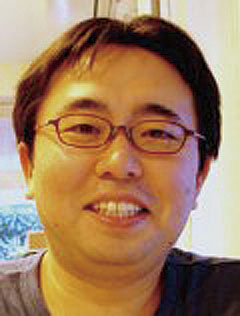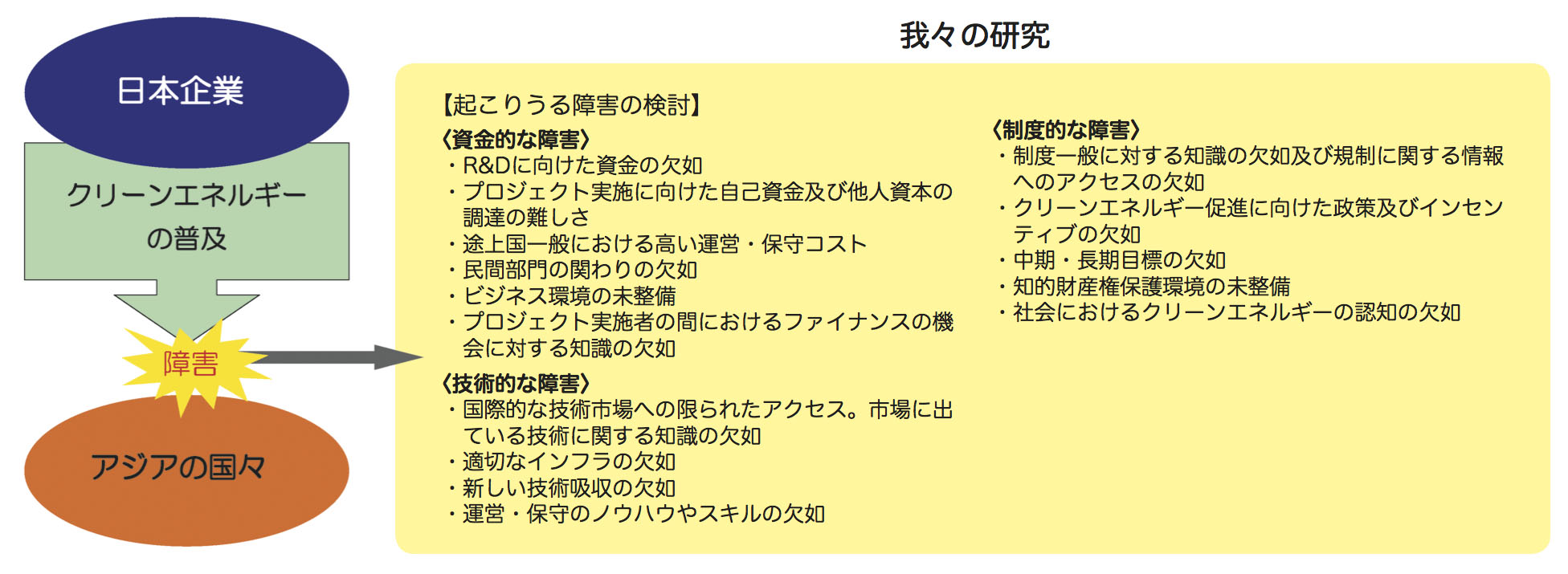2023.07.28

Graduate School of Global Environmental Studies / Master's (Doctoral) Program in Global Environmental Studies
Suzuki Masachika Professor
How Japanese companies can contribute to deploying clean energy technologies, including renewable energy and energy efficiency improvements, in Asia is a critical essence of Japan’s growth strategy. However, it is also true that the recipients of these technologies are challenged with many obstacles.
This research studies the obstacles pertaining to the development and transfer of individual technologies (see figure below). Obstacles are varied among countries, depending on the development status of each technology, country-specific circumstances and how they are incorporated in the supply chain.
The deployment of clean energy technologies would ideally be supported not only by bilateral and multilateral policies but also by business arrangements by enthusiastic private companies.

Policy proposals for the overseas deployment of environmental technologies
Consideration of not only large-scale clean energy but also potential for the deployment of environmental and energy technologies that will lead to improved quality of life in remote areas in developing countries.
Rich research network comprising mainly overseas and domestic researchers
Joint research with private companies to perform case studies of deploying specific technologies
Suzuki, M. (2013) Addressing key issues in technology innovation and transfer of clean energy technologies: A focus on enhancing the enabling environment in the developing countries, Environmental Economics and Policy Studies: 59.